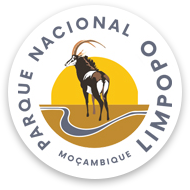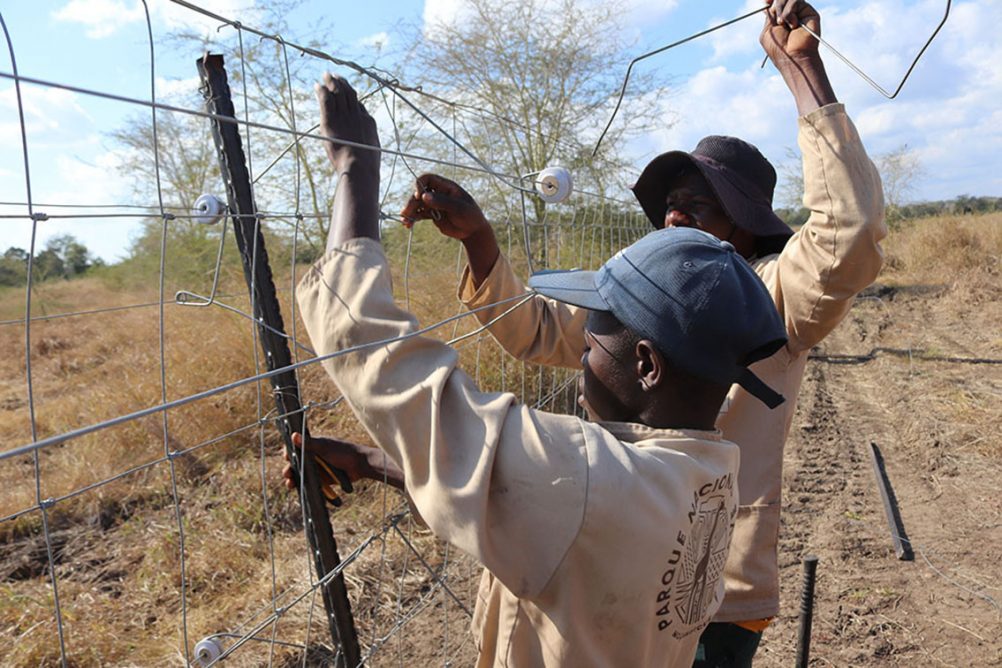Approximately 400 jobs will be created by the temporary cash-for-work programmes funded by KfW.
The German Federal Ministry of Economic Cooperation and Development (BMZ) has made EUR 1 million available through KfW Development Bank for a COVID-19 relief initiative in the Great Limpopo Transfrontier Conservation Area. The initiative is implemented by Peace Parks Foundation in partnership with the Mozambican Government’s National Administration of Conservation Areas (ANAC).
The activities to be funded include cash-for-work employment programmes that will provide temporary income for approximately 400 community members financially deprived as a result of the pandemic which has resulted in a collapse of tourism and other sectors which usually support these communities.
The global impact of COVID-19 has brought the tourism sector to a standstill. The industry – a major driver of jobs and growth, especially in Africa – now faces devastating economic consequences. The Ministry of Culture and Tourism of the Government of Mozambique reported in April 2020 that 1 000 establishments have had to close down, and 5 000 direct jobs have been lost in the tourism and culture sectors, with many more job losses anticipated.
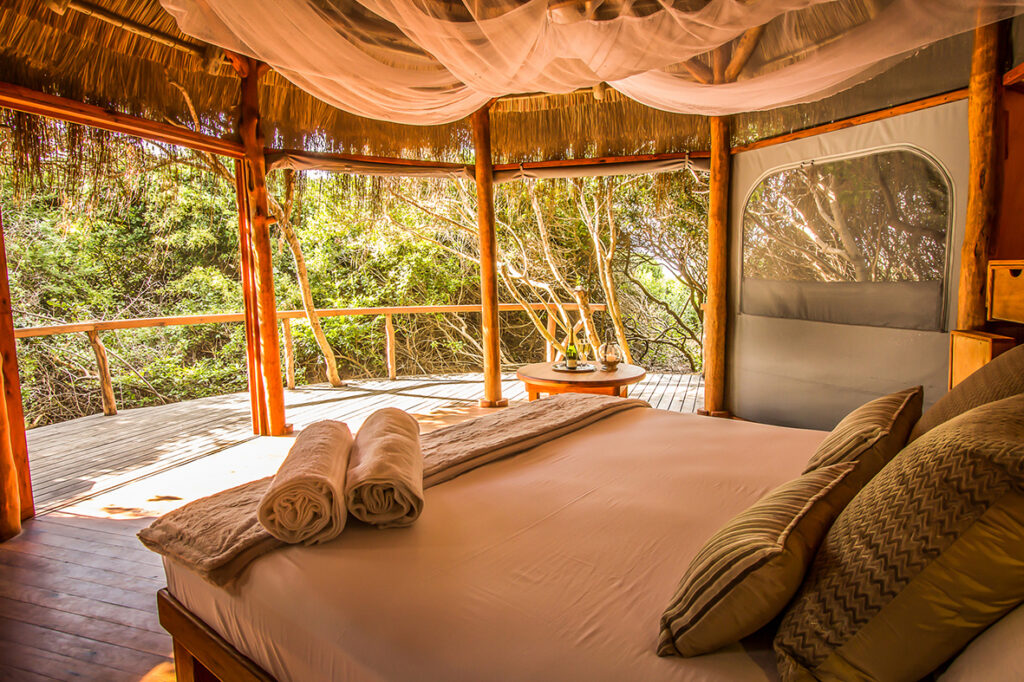
In addition, the knock-on effect of the absence of tourists, and the revenue they generate, are being felt by communities living and working in and around the country’s conservation areas. These communities receive a 20% share in revenues generated by the parks and a further 20% of the overall tourism income accrues to the Government to enable payment of expenses, such as the parks’ staff salaries, which now cannot be covered. Another critical contributing factor to the economic hardships faced by the communities, are the thousands of Mozambican migrant workers unable to cross the border to work in South Africa and send remittances home to support their families. Together with COVID-19 related job losses, additional income opportunities, such as selling produce and crafts to visitors, are also lost, compounding the overall impact of border closures and lockdowns. The pandemic threatens to reverse decades of work by governments and organisations such as Peace Parks Foundation, to bring about equitable benefits from conservation and related nature-based economies for local communities. Critical intervention is needed – as swiftly and as widespread as possible.
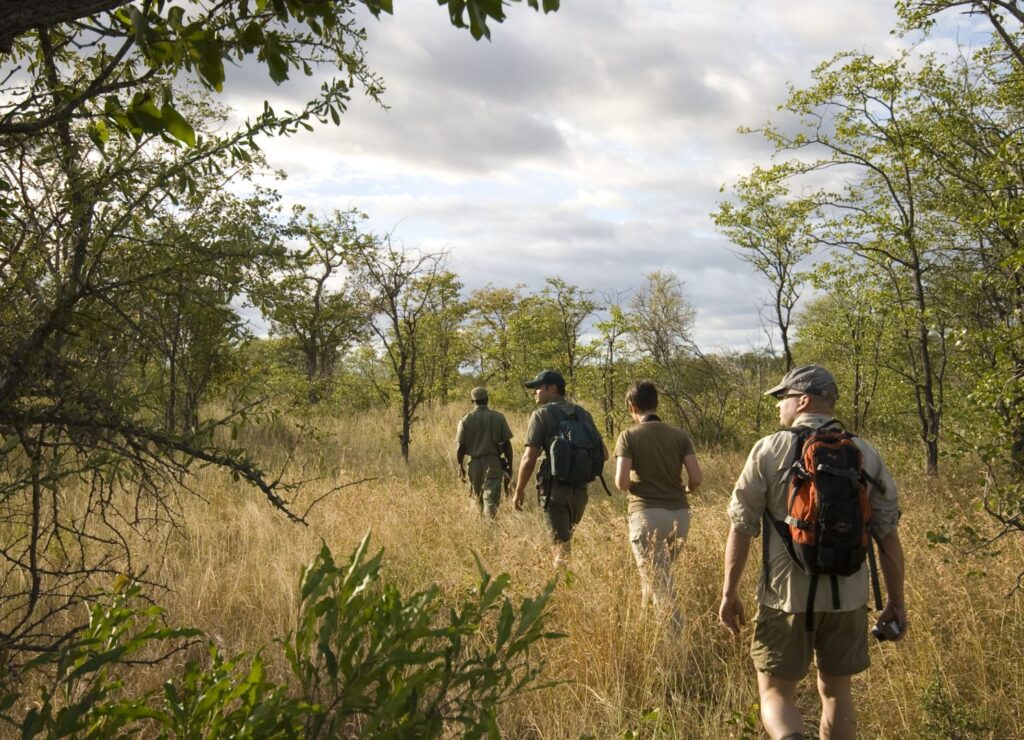
Protecting livelihoods
In response to this, Peace Parks Foundation in partnership with the National Administration of Conservation Areas (ANAC), through the financial support from Germany, is implementing cash-for-work programmes as a medium-term intervention.
The goal is to alleviate strain during this time of crisis by creating earning opportunities that stabilise incomes of vulnerable communities.
This buffers the economic shock of the pandemic and helps strengthen food security, thereby not only protecting livelihoods, but also potentially safeguarding against an unsustainable increase in subsistence poaching and other illegal utilisation of natural resources.
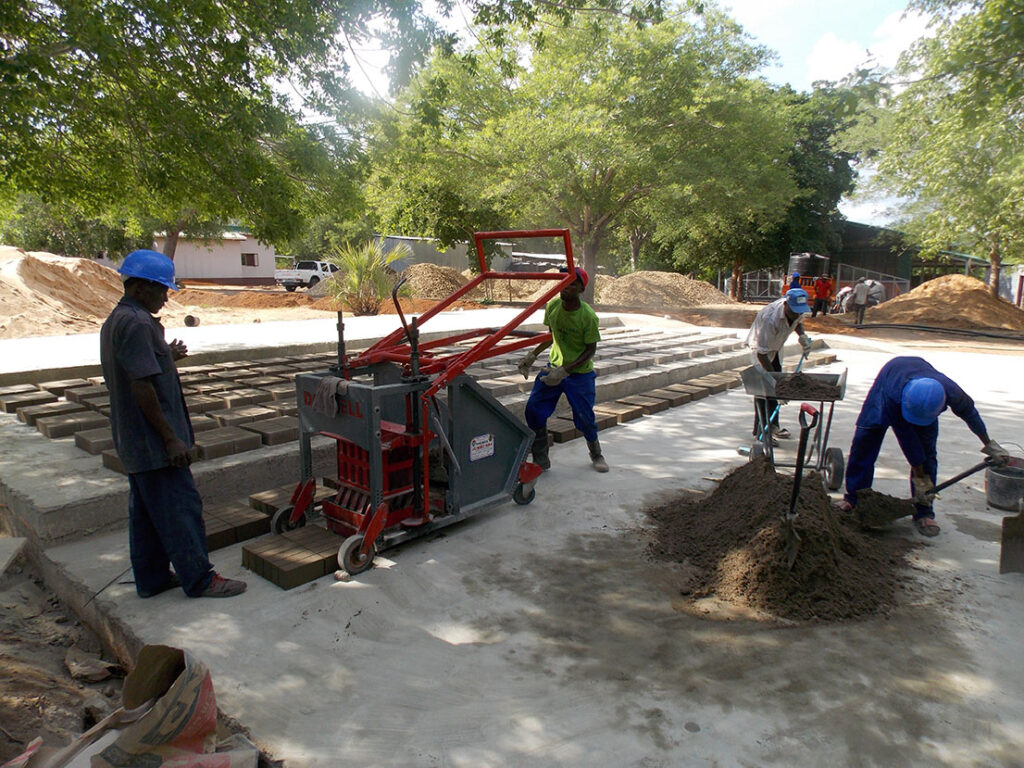
Interventions in Mozambique will focus on protected areas that form part of the Great Limpopo Transfrontier Conservation Area, namely Limpopo, Zinave and Banhine National Parks, where Peace Parks has an operational footprint. The EUR 1 million provided by BMZ through KfW, will create approximately 450 jobs (170 in Limpopo, 160 in Zinave, and 120 in Banhine) over 10 months. This work force will in turn support other upliftment projects, improve infrastructure and rehabilitate productive assets that the parks and eco-tourism initiatives within the parks are reliant on. Examples of activities include, but are not limited to:
- Clearing of bush encroachment of roads in protected areas;
- Provision of maintenance work at tourism facilities (lodges, camps);
- Manning of screening points at protected areas’ entrances;
- Fire break management in protected areas;
- Fence maintenance of protected areas;
- Clearing and fencing of airfields that should be maintained for operations during and after the pandemic; and
- Clearing boundary delimitation of Limpopo National park and buffer zone.
As always, Peace Parks is working closely with the National Administration of Conservation Areas (ANAC), partners and in-country leadership, to identify the most vulnerable tourism facilities and families, and to support them accordingly.
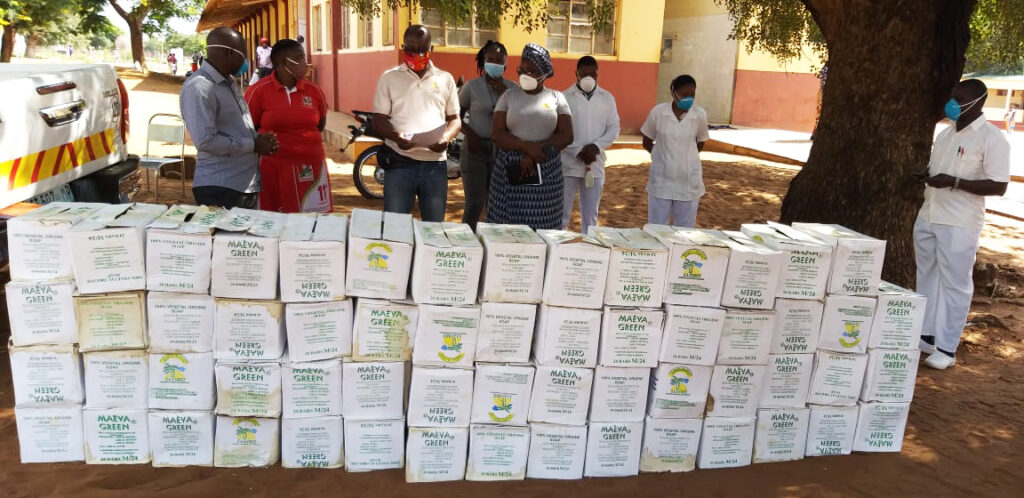
Alongside efforts to address the potentially far-reaching economic consequences of the pandemic, Peace Parks is providing ongoing support to more than 425 000 people in Zambia, Malawi and Mozambique in an effort to curb the spread of the disease in vulnerable communities. Having to date made available $100 000 of its own resources, the Foundation has provided almost 50 000 items that include masks, soap, sanitisers, wash stations, oxygen concentrators and regulators, humidifiers, isolation gowns, disposable aprons, goggles, surgical gloves, and non-contact thermometers, to vulnerable communities and health care services in and around transfrontier conservation areas.
Your donation can help Peace Parks Foundation save lives, and livelihoods: www.peaceparks.org/donate
